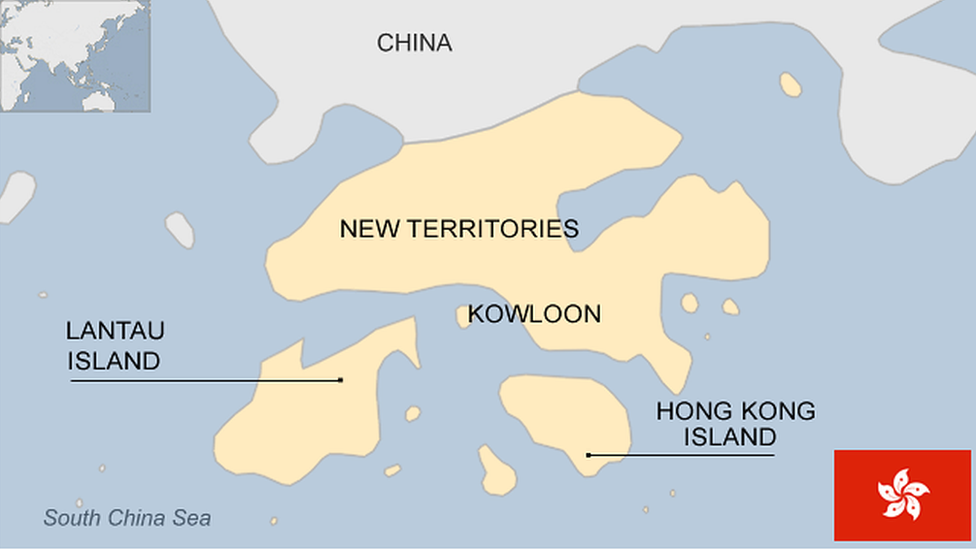Hu Jintao faces restive Hong Kong public
- Published
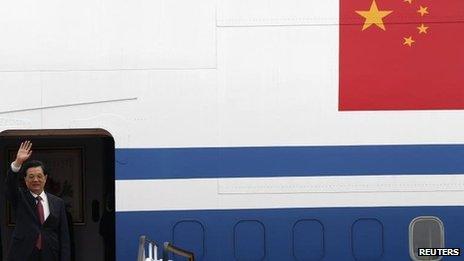
President Hu Jintao has arrived but not all Hong Kong residents welcome him
Chinese President Hu Jintao has arrived in Hong Kong to celebrate the 15th anniversary of the city's return to China, but he faces a noisy, unhappy public and an increasingly tense political climate.
Integration with the mainland has brought Hong Kong much success as a global financial centre but it has also created problems.
Those problems seem to be at their worst at any time since the handover, according to a series of surveys and opinion polls.
The gap between Hong Kong's rich and poor is at a 30-year high, property rental prices have risen to record levels and residents are upset by daily news reports on corrupt lives of officials at the highest levels of Chinese government.
An independent poll shows the Hong Kong public's mistrust of the Chinese government stands at a post handover high, largely because of a number of political scandals.
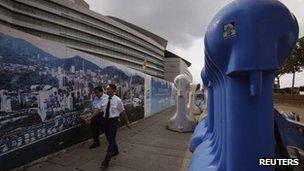
Security barriers have been set up at key sites ahead of Mr Hu's visit to Hong Kong
These include the sacking of senior Communist Party official Bo Xilai, the plight of human rights activist Chen Guangcheng and, most seriously, the suspicious death of Tiananmen Square dissident Li Wangyang in June.
"What happens in China very closely affects Hong Kong people, because we're all ethnic Chinese," said Frank Lee, a pollster at the University of Hong Kong's public opinion programme.
"That's probably the reason why, at this moment, many people don't trust the Beijing government. In fact, anger is at the peak right now."
Wealth gap widens
Despite a relatively strong economy and a string of financial incentives announced by Beijing to boost popular support in the semi-autonomous city, Hong Kong is a much more restive place than it was five years ago, when Mr Hu last came to visit, in a blaze of pre-Olympic glory.
Ahead of the visit, Hong Kong's census bureau publicised data that showed inequality had widened to its highest level in three decades.
According to US government rankings, Hong Kong's wealth gap now outstrips all other developed nations. It ranks behind highly unequal countries such as Colombia, Haiti and Sierra Leone.
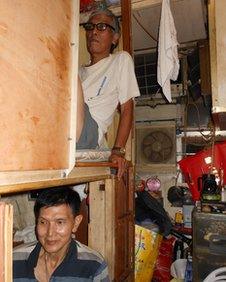
Mr Wong (above) and Mr Lee live in bunk beds called 'coffin homes'
Monthly incomes for Hong Kong's poorest have fallen by about 8% over the past five years, while salaries for the richest have grown by about 25%, according to the newest census data.
Sze Lai Shan, a social worker with the Society for Community Organisation, said as a result of integration with the mainland, Hong Kong's economic structure had changed.
"The factories have moved to mainland China, and the government believes in the trickle-down theory where everyone benefits from overall economic development. So they have done little for the poor," she said during a visit to a cramped sub-divided flat.
The first-floor flat is in the shadow of the glitzy commercial district of Causeway Bay.
Inside two dozen people - mostly single middle-age or elderly men - reside in enclosed wooden bunks the size of a single bed.
Locals call these coffin homes, because each is slightly larger than the size of a coffin. Rent ranges from HK$1,000 ($128, £83) to HK$1,400 per bunk.
Lee Chi Wai, a 57-year-old cleaner with a warm smile, lives with his worldly possessions - a tiny television, a few compact disks, some plastic shelves and several shirts - directly below Wong Ching Po, 60.
When not working, the two men watch television and engage in friendly banter. Both decry the lack of opportunities and inadequate public housing in Hong Kong.
"It's very hard to find a job," said Mr Lee. "Most companies have moved to China. Those that stay want temporary workers not permanent staff. When the contract is over, I have to look for another job. That is why life is hard."
Following the release of the census figures, Hong Kong's incoming Chief Executive CY Leung - who is to be sworn in on Sunday - announced he would chair a new preparatory task force to tackle poverty.
'Freedom issues'
Besides anger over social inequality, Mr Hu will be greeted by two large-scale democracy protests over the weekend.
The rally on Sunday is the annual human rights demonstration that traditionally starts at Victoria Park and ends at the Hong Kong government office in Admiralty.
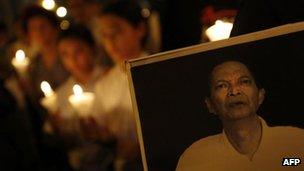
Li Wangyang's suspicious death in early June in China sparked public outrage in Hong Kong
"Hong Kong people are very uptight about freedom issues on the mainland, because they reflect on us. If not today, then tomorrow. If it's not in Hong Kong's present, it's going to reflect on our future," said Claudia Mo, a member of the Civic Party.
Last year more than 200,000 people took part. This year organisers hope the crowd will be even larger because Hong Kong residents feel the Chinese government is becoming more, not less, corrupt and repressive.
The other rally on Saturday, due to finish at the Hong Kong Exhibition Centre in Wanchai, is timed to coincide with Mr Hu's dinner plans.
Protesters will demand a reversal of the official verdict on Tiananmen Square, currently branded a counter-revolutionary activity, and a thorough investigation into the death of Mr Li, the elderly, disabled Chinese activist.
Mr Li's suspicious death in early June in central China sparked outrage in Hong Kong. Chinese officials have promised a proper investigation, but Hong Kong people remain sceptical.
Although Mr Hu's visit in 2007 coincided with pro-democracy protests, the political climate in China and Hong Kong was different at that time.
Five years ago, China seemed relatively open to democratic reform, as it promised organisers who awarded Beijing the 2008 games.
Restrictions were eased for foreign and Hong Kong journalists. Activists such as AIDS campaigner Hu Jia and pro-democracy campaigner Liu Xiaobo were given relative free rein to air their views.
The country appeared to be edging ever so slightly closer to Hong Kong's core democratic values of clean government, the rule of law and freedom of speech.
But this year the political atmosphere is strained as Mr Hu arrives bearing financial incentives to drum up public support. He is expected to stay until Sunday.
- Published29 June 2012
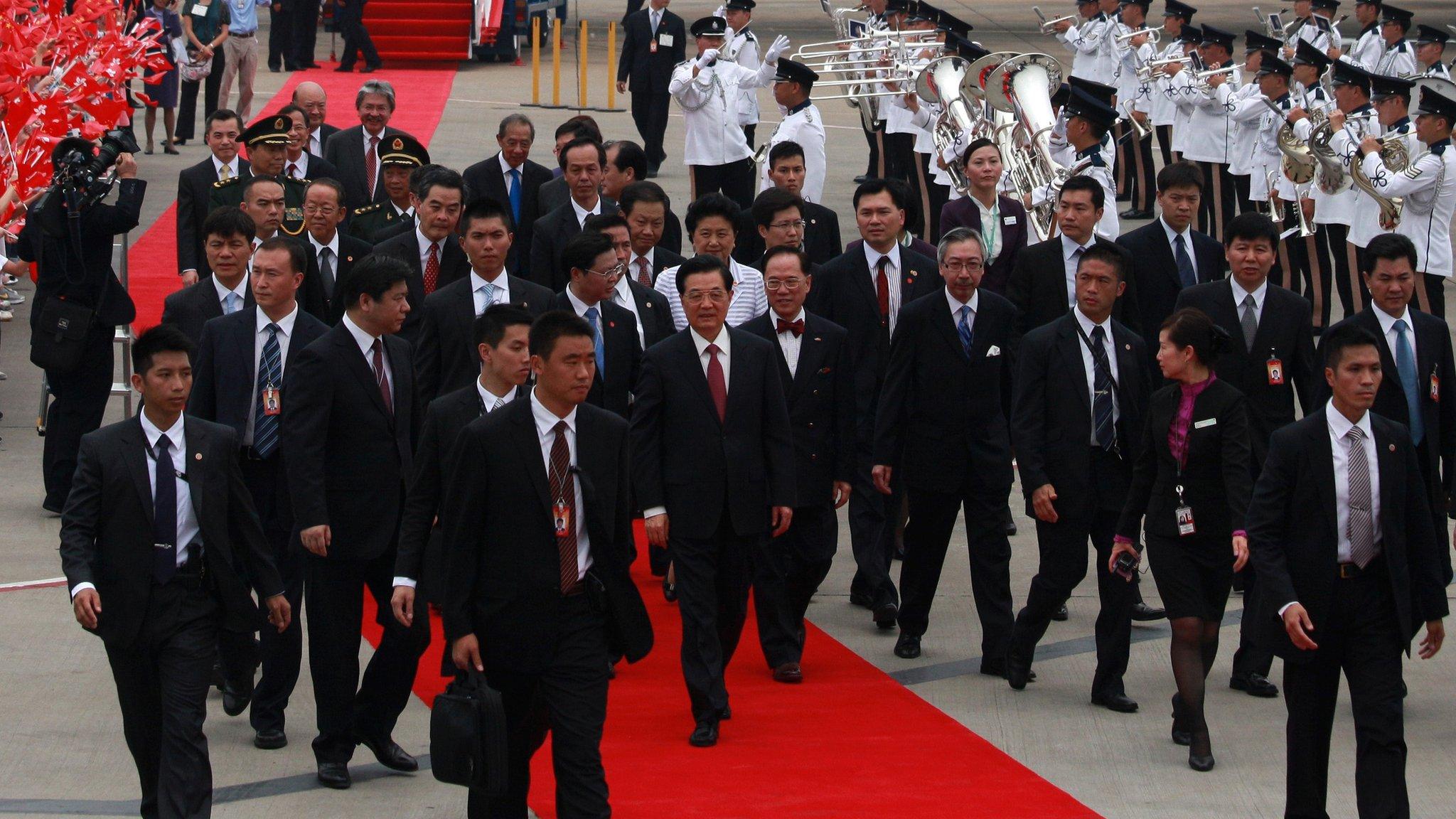
- Published13 June 2012
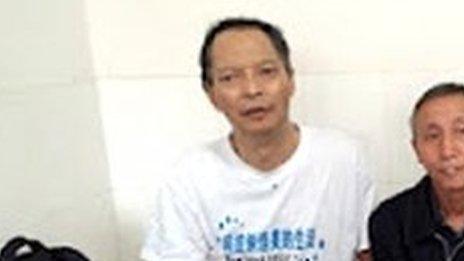
- Published17 June 2012
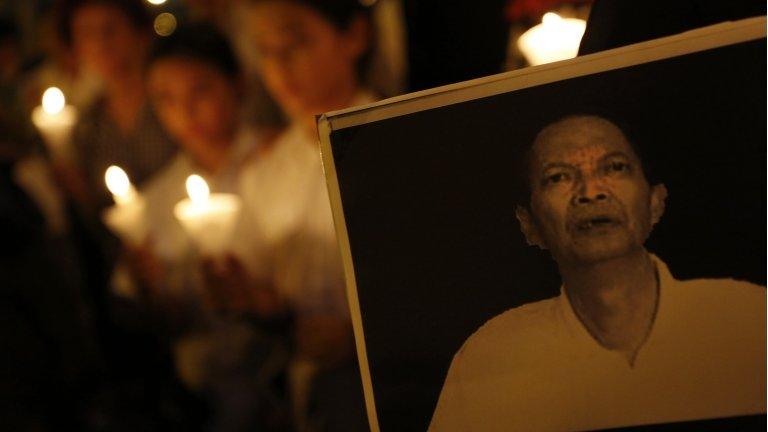
- Published4 April 2012
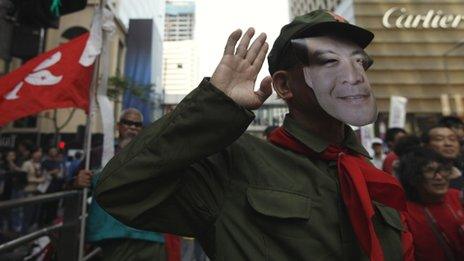
- Published25 March 2012
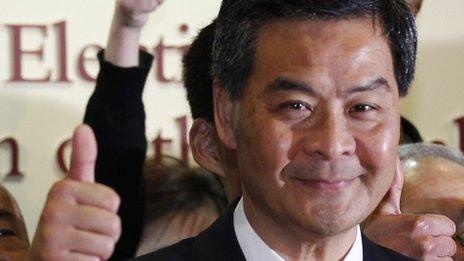
- Published23 March 2012
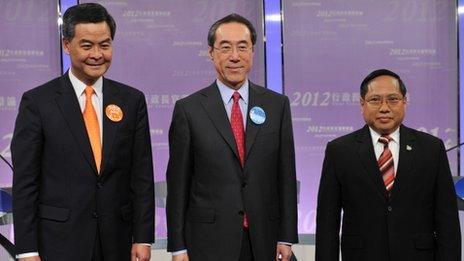
- Published7 January
